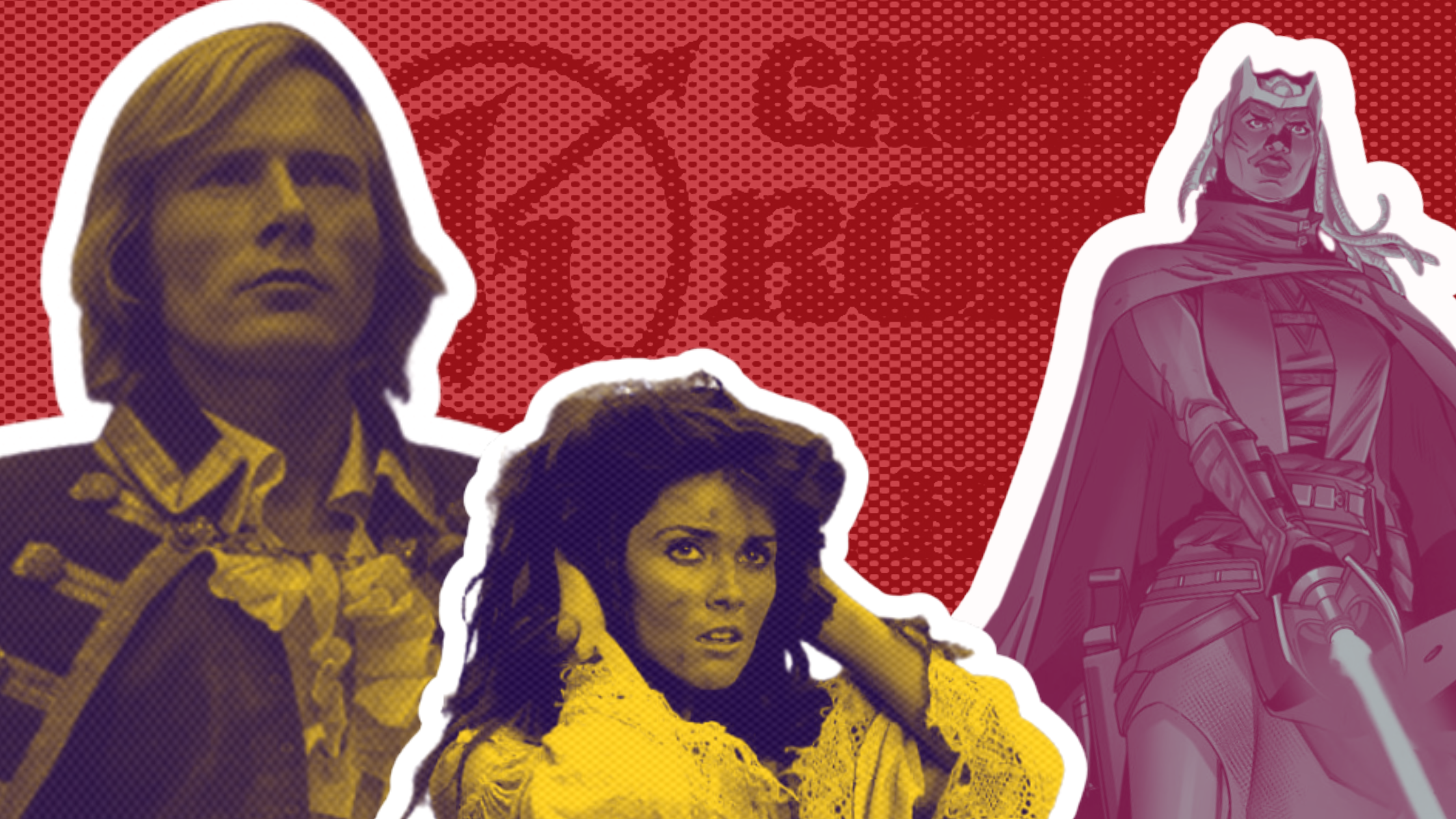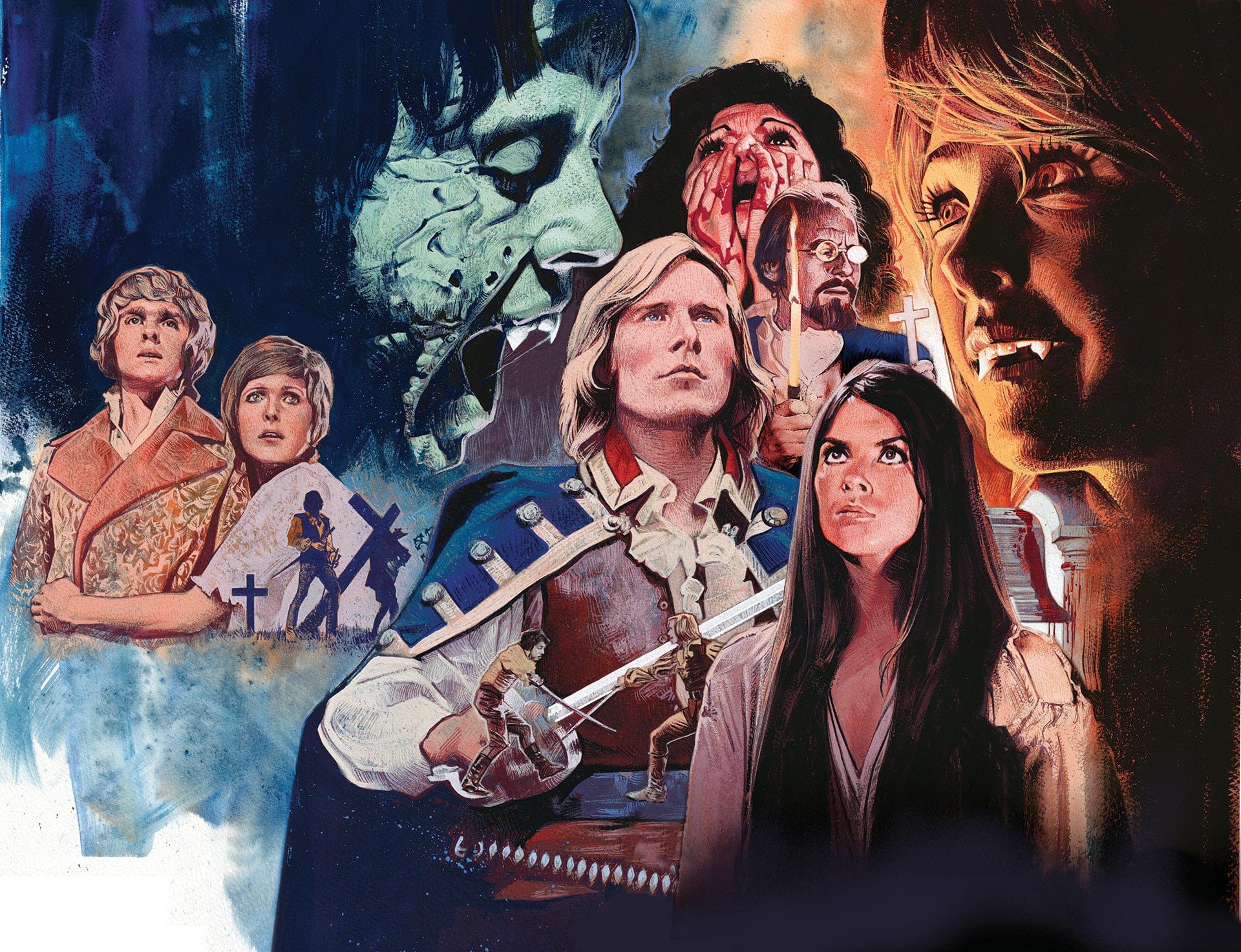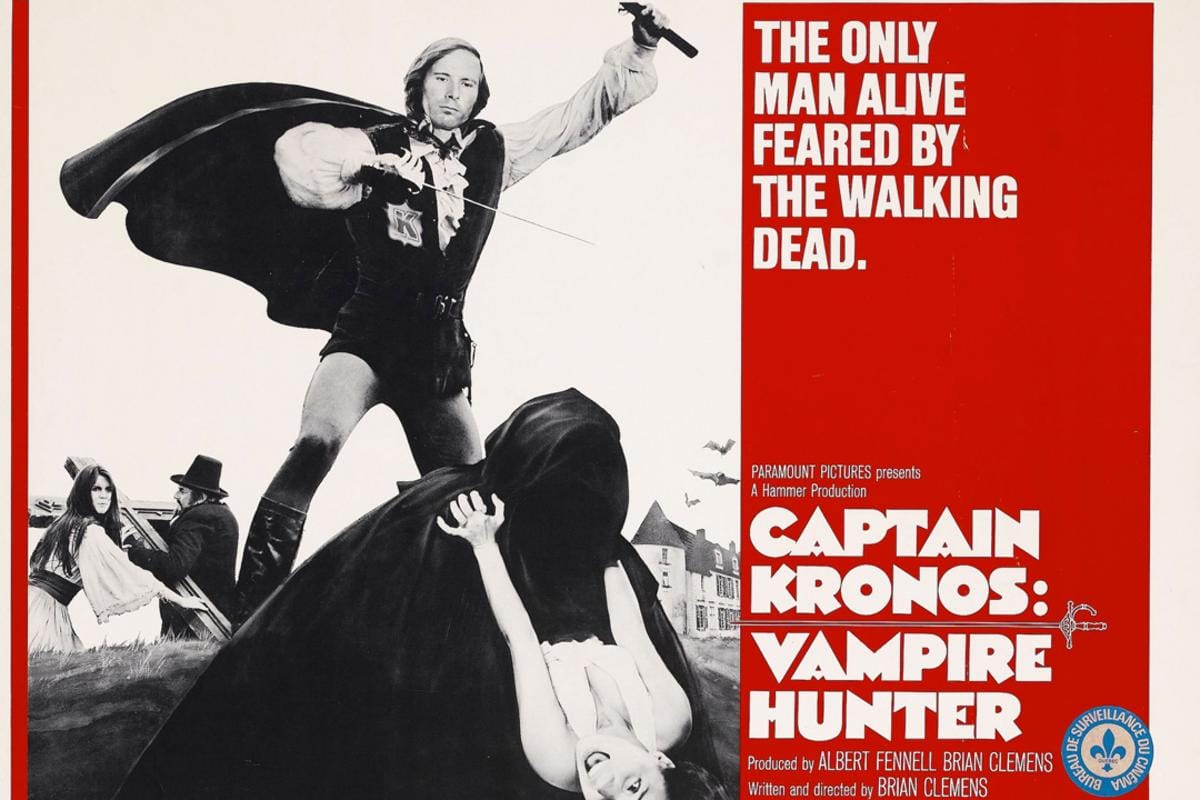Captain Kronos: the Vampire Hunter who got his kill but never his franchise
Revisiting the forgotten Hammer horror that inspired Project: Twilight and Star Wars: The High Republic’s Saber-For-Hire

Captain Kronos Vampire Hunter is a film that both fascinates and frustrates me. It’s an oddity: Hammer’s desperate attempt to stay relevant in a shifting landscape — an experiment the studio never backed and the opening salvo of a franchise that never was. The directorial debut of Brian Clemens, the genius behind The Avengers, there are flashes of brilliance that place Kronos above the usual Hammer fare and yet the story itself is remarkably slight. You’d be forgiven for thinking it had been written ready to be cut down for TV if needs be, a feature of the cheap and cheerful, knock-‘em-out-in-ten-days melodramas Clemens scripted for the Danziger brothers before finding success on the small screen.
Unfortunately, the film’s biggest problem is Kronos himself: all macho swagger and little charisma, made worse by actor Horst Jansen’s dubbed dialogue, which hollows out any personality from his performance.

And then there’s the treatment of women, personified in Carla as played by Caroline Munro. Rescued from the stocks by Kronos, she serves little purpose beyond conducting chores, applying leeches, and swooning over her taciturn saviour. Their relationship turns unsettling when Kronos ‘plays rough’ during lovemaking — an uncomfortable moment that exists only to highlight how troubled our hero is by his tragic past. The victimisation of women is the movie’s greatest crime, and one of the principal reasons it feels so dated, even as it tried to steer Hammer in a new direction. Even when — spoilers — the true villain is revealed in a neat plot twist, she’s instantly sidelined so the men can buckle their swash in an — admittedly thrilling — final duel. You spend the entire movie waiting for a female character to do something more interesting than being pretty or dead, but beyond a few false starts, it never happens — all the more frustrating when you remember that this is the man who gave us Emma Peel. How much better would this be if Carla had been allowed to pick up a sword and join the fight against Kronos’ attackers rather than just simpering in a horse cart a few feet away?
All of which makes it sound as if I don’t like the film, which couldn’t further from the truth. I first saw Kronos at university and instantly fell head over heels with the concept of a katana-welding vampire hunter, a dashing figure that reminded me of the wandering adventurers of Robert E. Howard’s short stories and led directly to my love of movies like Blade, Underworld and even 2004’s Van Helsing, which, for me at least, has always felt more like a love letter to Hammer than Universal. It isn’t difficult to draw a straight line from Captain Kronos to Nimrod, the vampire hunting cyborg antihero in Project: Twilight, the very first Doctor Who audio drama I co-wrote with Mark Wright. In a 1974 Monster Times interview, Clemens labelled the movie a ‘horrorventure’, the perfect name for a genre I’ve always loved.

Other Kronos highlights include:
- The genuine attempt to reinvent the vampire myth, with hints of many different kinds of life-suckers lurking in the shadows.
- Flowers wilting as the vampire glides by.
- Blood artfully dripping over lamps and mirrors — though how it ends up splashing onto a tolling church bell is anyone’s guess.
- Those long, beautifully carved stakes. I want one!
- The wonderfully weird folklore, including the inspired idea of burying dead toads as an early-vampire-warning system (although animal loving Clemens was at pains to point out in interviews that no amphibians were harmed in the making of the movie.
- The weirdness of the woman with the blindfold over her eyes in the pub. Every time I watch the movie, I assume she’s going to be important to the plot, but she just there, presumably to add to the general sense of oddness.
- Talking about odd, what gives Kronos with meditating with a bag over his head as Grost forges his vamp-slaying sword? What the hell, dude?
- Professor Grost in general. John Cater’s impish folklorist-turned-occult-Major-Boothroyd radiates far more charisma than the film’s supposed hero ever musters.
- The samurai-inspired showdown in the tavern with Ian Hendry’s brutish bully (even more impressive as by this point Hendry was almost impossible to work with due to his drinking.)
- The relationship between Kronos and Dr. Marcus, a friendship that seems genuine from the off leading to its heartbreaking — and highly creative — conclusion.
- Composer Laurie Johnson’s rousing soundtrack built around Kronos’ rollicking theme — another nod to Clemens’ ambition to make horror’s very own James Bond.
Captain Kronos is messy, dated, and sometimes infuriating, but it’s also stylish, ahead of its time, and utterly unique. It’s the kind of film that could only have come from the Hammer of the 70s, where the studio was allowing film-makers like Clemens to do their own thing, even if they didn’t know what to do with the results. Clemens once claimed that Kronos was a movie the studio allowed to escape rather than release, and it’s never quite gone away.
There’s many reasons Captain Kronos Vampire Hunter became a cult classic and why it still casts a shadow over my work today, from Nimrod in Project: Twilight to the creation of Ty Yorrick in Star Wars: The High Republic, my very own emotionally stunted, saber-welding monster hunter.
Have you seen Captain Kronos? And which lost franchises haunt your dreams?
Let me know your thoughts in the comments below.

